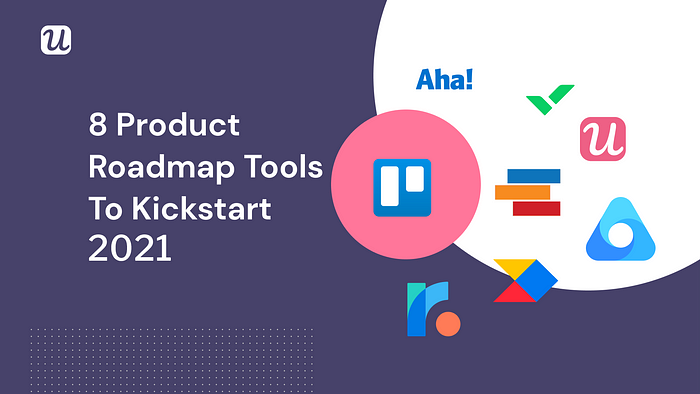The 8 Best Product Roadmap Tools of 2021

Roadmapping is a crucial part of every product manager’s role, but it’s safe to say a lot of PMs don’t particularly enjoy it. Luckily, there are some excellent product roadmap tools / planning tools out there to help make it more bearable. If you like this list, visit the Userpilot blog for more product management and planning resources.
In this article, we’re going to look at the most popular product roadmap tools. All have their own strengths and weaknesses, and some will suit your needs more than others.
The product roadmap tools we’re going to look at are:
But before we get to the product roadmap tools, we’ll start by looking at the key features you need from a product roadmap tool…
What every product roadmap tool should do
When it comes to creating a product roadmap, there are several things you need to consider:
- Who will maintain your roadmap?
- What will the roadmap show?
- Who will access the roadmap?
Let’s look at each of those in turn.
Who will maintain your product roadmap?
Roadmaps are generally owned by the Product team. More specifically, the Product owner will oversee the roadmap’s construction.
In smaller teams, the Product manager can essentially be a team of one. In this case, they will be tasked with building and updating the roadmap.
In larger teams, however, there may be several people tasked with maintaining the roadmap. That might include other Product managers, and also people from different teams, such as Customer Success managers.
It’s important to consider this when choosing a product roadmap tool.
If one person is looking after the roadmap, then you don’t need to worry about collaborative tools as much.
If, however, several people need editing access, then you need to choose a more collaborative roadmapping software that enables that.
What will the product roadmap show?
Roadmaps can serve different purposes to different SaaS companies, and even different teams within one company.
Some roadmaps are extremely detailed, providing a granular view of what is planned for the product. Others, meanwhile, are simple, high-level glimpses of what the future may hold.
Deciding which type of roadmap is right for your company is an important step. We could (and probably should) write a whole blog post about this one decision.
Ultimately, it boils down to this: What is your goal for your roadmap? How does it serve your organization? Is it simply a way for your Product team to keep their ideas in one place, or is it a way to show stakeholders exactly what to expect? Perhaps it’s both.
Once you know why you’re building this roadmap, and the form it’s going to take, then you need to choose an appropriate tool. It’s no good using a high-level roadmapping tool if you want the added detail.
Who will have access the product roadmap tool?
While the roadmap often provides most value to the product team, other teams can find a use for it.
Your Sales team, for example, may use your roadmap to inform prospects who ask about future releases. Your Customer Success team may want to check on the status of a customer’s feature request. Each team may require a different view of the roadmap altogether.
It’s important that your product roadmap tool facilitates this if you feel it’s something you’ll need.
There’s also another group of people who you might want to give roadmap access to: Your customers. Sometimes, the best approach is to be transparent and provide a roadmap for your customers and prospects to look at. This way they know what you have planned for your product.
Not every roadmapping tool enables customers to view the roadmap. If you do want your customers to have access, then make sure you choose a tool that lets you do this.
Ready to see our list of the best product roadmapping tools for SaaS?
Head on over to the Userpilot blog post for the full list of the 7 best product roadmap tools!
